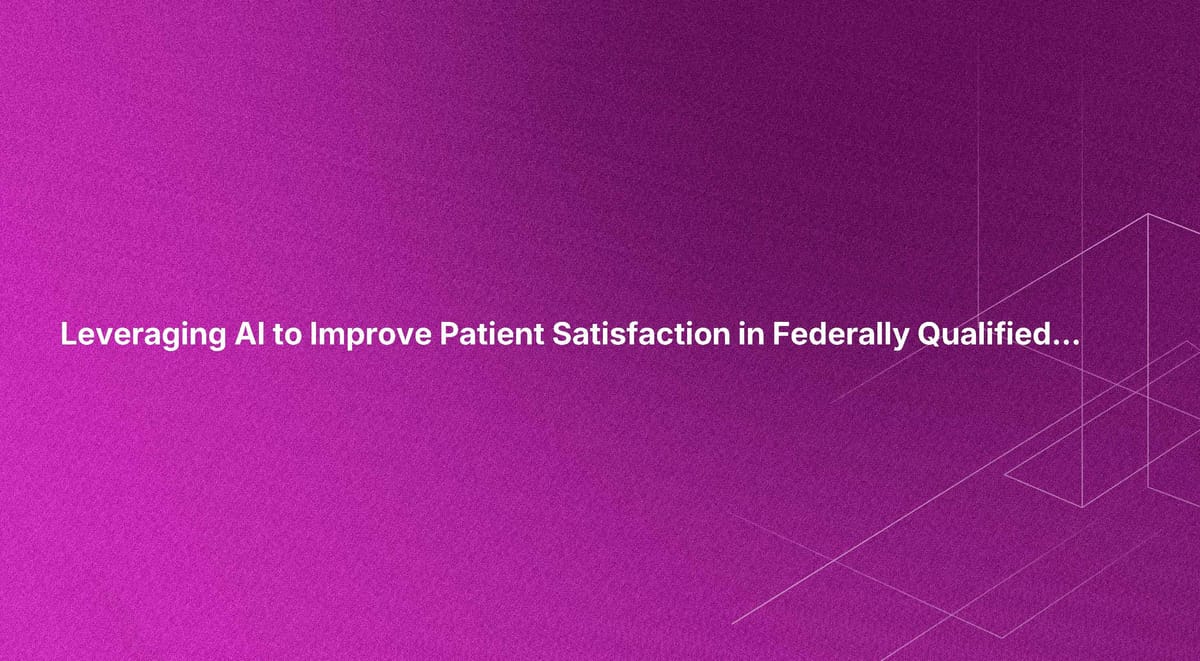Leveraging AI to Improve Patient Satisfaction in Federally Qualified Health Centers (FQHCs)

Enhancing patient experiences through predictive analytics and real-time intervention strategies
Overview
Federally Qualified Health Centers (FQHCs) are critical healthcare providers offering services to underserved communities. Operating under programs like Medicare and Medicaid, FQHCs provide medical care on a sliding fee scale and are often governed by a board that includes patients. To continue receiving funding and serving their communities effectively, FQHCs must meet various performance indicators, including patient satisfaction scores. These scores not only reflect the quality of care provided but also influence the level of funding FQHCs receive, directly impacting their ability to expand services and improve healthcare delivery.
Problem Statement
Patient satisfaction is a crucial metric for FQHCs as it directly impacts their funding and operational capabilities. Understanding why some patients are dissatisfied and predicting potential dissatisfaction in real-time is essential for providing better patient care and improving overall satisfaction scores. Identifying these issues promptly allows healthcare providers to intervene and rectify any concerns, ultimately ensuring that patients have a positive experience.
Solution Overview
By utilizing AI-driven predictive analytics, hospital administrators can gain real-time insights into which patients are at risk of leaving with negative experiences. Through machine learning models and data analysis, these systems can identify patterns and factors contributing to patient dissatisfaction. Armed with this information, healthcare providers can proactively reach out to at-risk patients, address their concerns, and improve their overall experience before they leave the facility. The implementation of such an AI solution involves integrating patient data sources, including electronic health records (EHRs), patient feedback surveys, and operational data, into a centralized system. Advanced algorithms analyze this data to predict dissatisfaction and identify its primary causes. Technical aspects include ensuring data privacy and compliance with healthcare regulations, setting up real-time alert systems for hospital staff, and providing actionable insights through user-friendly dashboards. On the business front, the benefits of increased patient satisfaction are manifold. Higher satisfaction scores can lead to enhanced funding opportunities, enabling FQHCs to expand their services, hire more clinicians, and invest in better healthcare infrastructure. Moreover, a satisfied patient base is likely to lead to positive community health outcomes, reinforcing the essential role of FQHCs in serving vulnerable populations. The implementation of AI-driven solutions ensures that these centers can continue to operate at their fullest potential, ultimately benefitting both the community and the healthcare providers.





